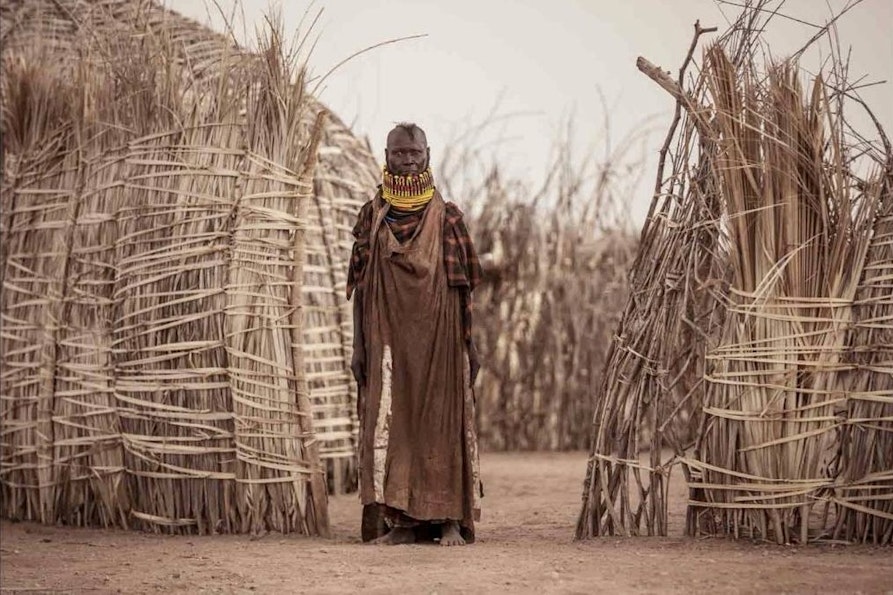„Even small collaborations can make a world of difference”
Das Festival Kwetu Kwanza setzt auf Kooperation. Auch mit Südtirol.

© Kwetu Kwanza
Letzten Dezember besuchte ich das erste Mal Uganda und habe dort einige tolle Designer*innen kennengelernt und viel Interessantes über die lokale Textil- und Modelandschaft erfahren. Godfrey Katende war dann auch im April virtueller Gast bei Fashion For Future Bolzano und hat uns über seine Arbeit als Designer in Ugandas Hauptstadt Kampala erzählt, über die Herausforderungen lokale Mode zu promoten und zu verkaufen, ein funktionierendes Business aufzubauen, Sichtbarkeit aufzubauen und vor allem lokale Materialien wie Barkcloth (mehr dazu unten) zu etablieren. Ein interessanter Austausch hat sich entwickelt. Godfrey Katende arbeitet seit Jahren daran, nicht nur sein eigenes Label IGC Fashion zu entwickeln, sondern auch die Community aufzubauen und zu vernetzen. Gemeinsam mit seiner Partnerin Natalie und einem engagierten Team arbeitet er gerade an der neuen Ausgabe des Festivals Kwetu Kwanza, das von 20. bis 23. November 2025 stattfindet.
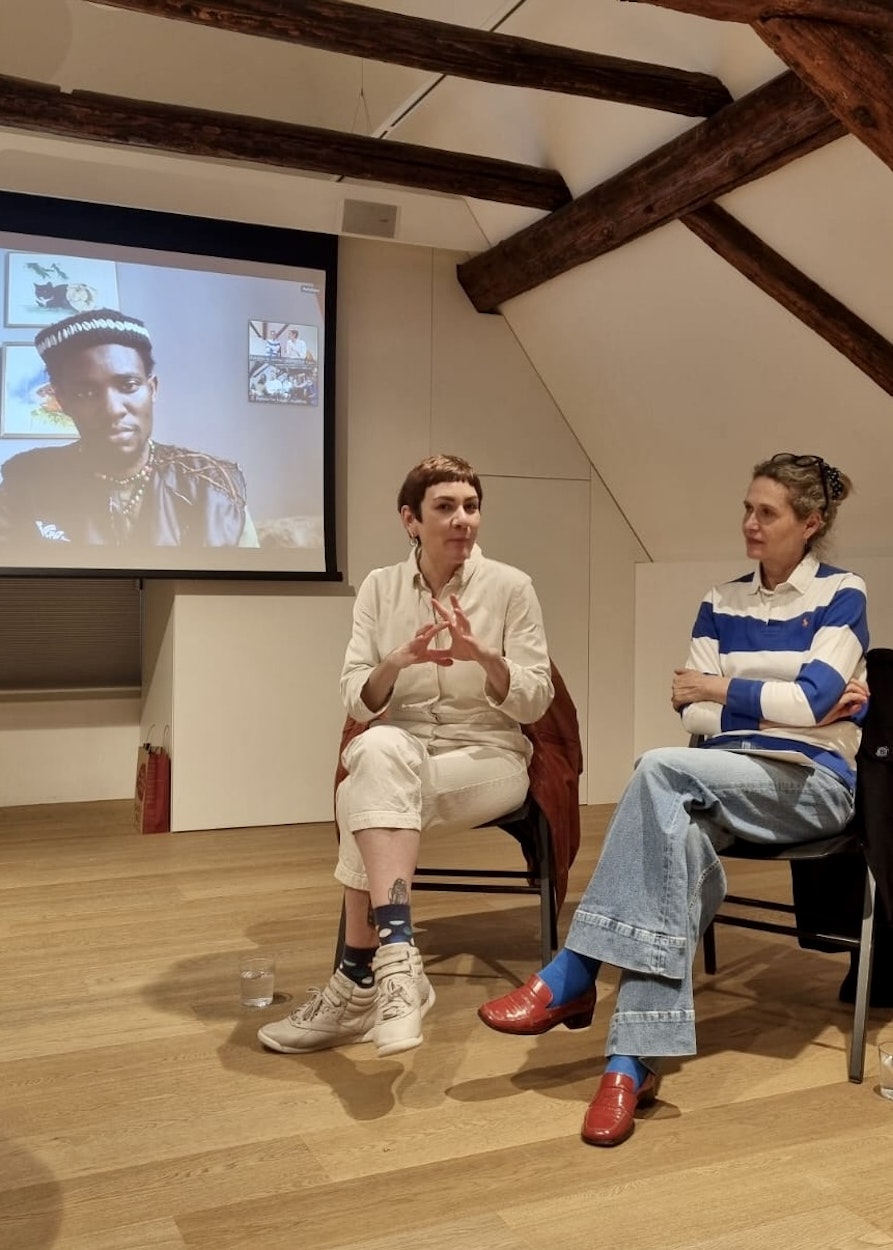
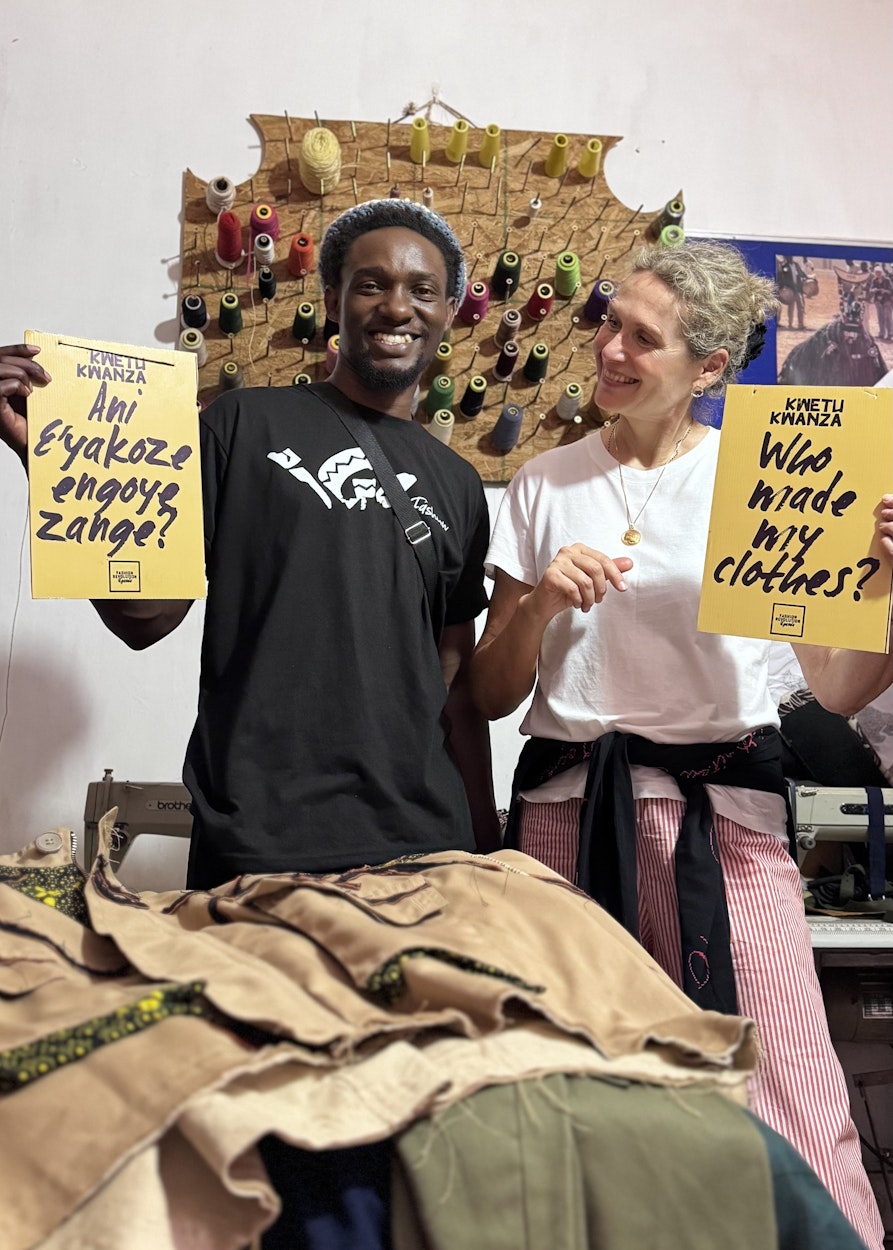
Kwetu Kwanza hat sich zu Ostafrikas führender Plattform für zirkuläre und regenerative Mode entwickelt. Kwetu Kwanza bedeutet auf Suaheli „Ours first-Zuerst wir“ und soll klar machen, dass unser Planet an erster Stelle stehen muss. An dem Festival nehmen Designer*innen, Filmemacher*innen, Performer*innen, Künstler*innen und Kulturschaffende teil. Ausbeuterische Systeme und Verhaltensweisen sollen aufgezeigt und aufgebrochen, gleichzeitig eng gefasste Definitionen von Nachhaltigkeit in Frage gestellt werden. Weil sie oft die afrikanische Erfahrung und Geschichte nachhaltiger Mode übersehen.
Wir – das sind einige Secondhand Stores und ich – unterstützen die neue Ausgabe des Festivals. Am 21. und 22. November 2025 findet im Werk 3 in Bozen ein Pop-up Secondhand Market statt. Die Erlöse gehen an Kwetu Kwanza. Nach dem Festival soll es Anfang Dezember einige Panel Talks geben, an denen auch mein Kollege von Fashion For Future Aart van Bezooijen und ich teilnehmen.
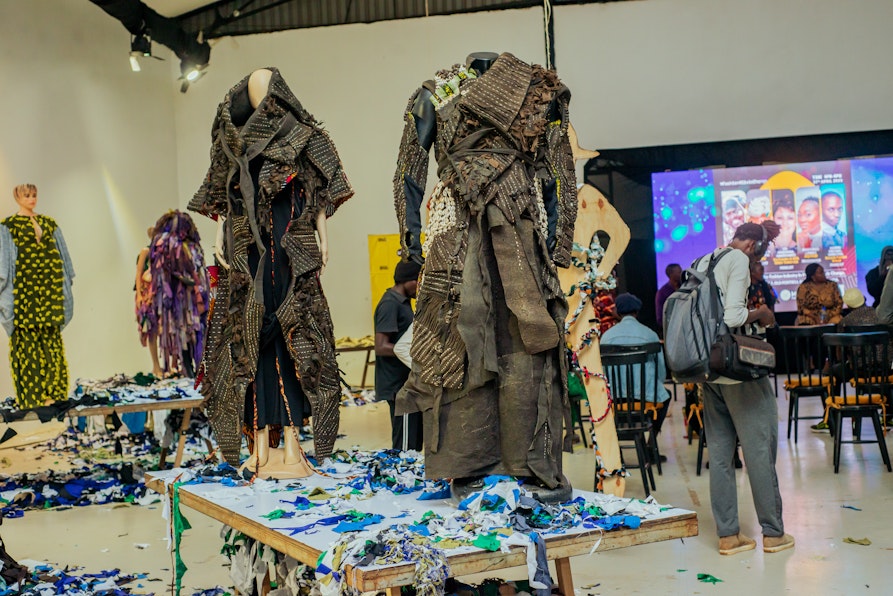
Ich habe Katende und Natalie einige Fragen zum Festival geschickt. Here we go:
What challenges are African/Ugandan designers facing right now?
The main challenges are accessing markets and funding, as well as competing with imported secondhand textiles.
It’s particularly difficult to sell artisanal and craft goods locally. The climate-conscious narrative hasn’t yet reached most local consumers, so sustainable designers often rely on limited access to global audiences (mainly expats) or must balance between local trends and international tastes.
Cuts in USAID and other development funds have deeply affected the sector. It’s estimated that over 80 % less money now circulates within the creative economy, stifling many projects.
About 90 % of clothing in Uganda is secondhand. These imports undercut the cost of new, handmade items and dilute local culture and aesthetics.
And we have limited collaboration opportunities because mobility restrictions make it difficult for artists and designers to collaborate across continents.
How can the festival help to improve the situation?
The festival raises awareness about why sustainable fashion matters and showcases the value of the artists’ work through workshops, talks, and designer spotlights.
Residencies and open studio sessions in the newly opened Fashion Cypher Foundation studio will allow designers to exchange ideas, experiment, and form new cross-border partnerships.
With over 5,000 in-person attendees and 75M+ online views (through our partnership with Nyege Nyege), the festival offers one of the best market opportunities in Uganda. The last edition of Nyege Nyege reportedly generated $2 million for the Ugandan economy – highlighting the potential for independent designer sales. This year, every designer in the Kwetu Kwanza exhibition will have a sales rack beside their displayed costumes, rather than being separated into the marketplace area.
Collaborations with international media increase visibility for Ugandan designers and their work.
What is planned for the new edition?
We’re celebrating our widest cohort yet, with new partnerships including The OR Foundation (Ghana) and Maisha by Nisria (Kenya) – amplifying our work as a shared, continental effort.
We’re building a Manyatta-style village, in collaboration with 19 members of the Karamoja community (a semi-nomadic tribe in northern Uganda), using only natural materials such as sticks, hay, and branches to house the exhibition.
And we’re also celebrating the opening of the first physical site and residency location of the Fashion Cypher Foundation in Kazo, Kampala. Designers from Kenya, Ghana, Uganda, Turkey, and beyond will have access to the space for open studio sessions – to create new pieces, develop installations, and collaborate before the festival.
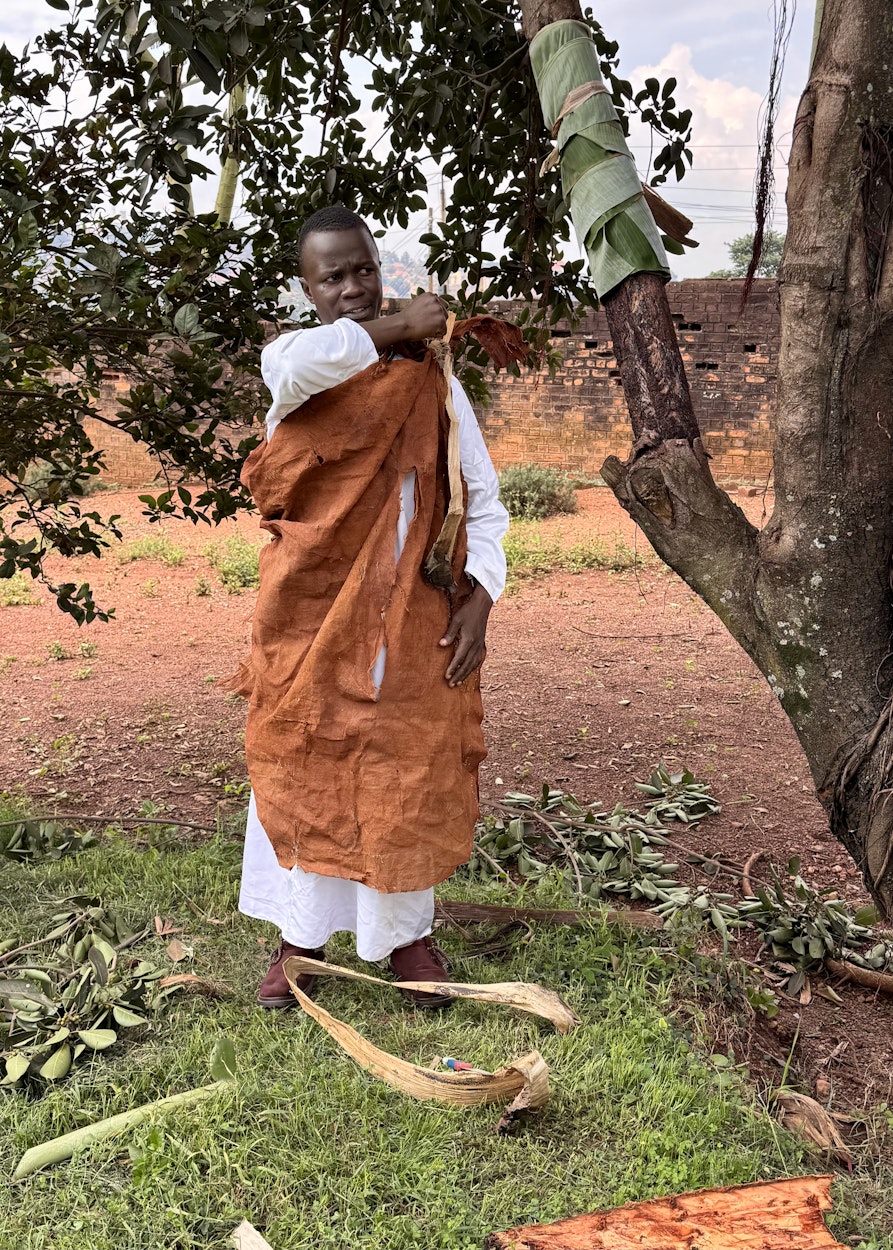
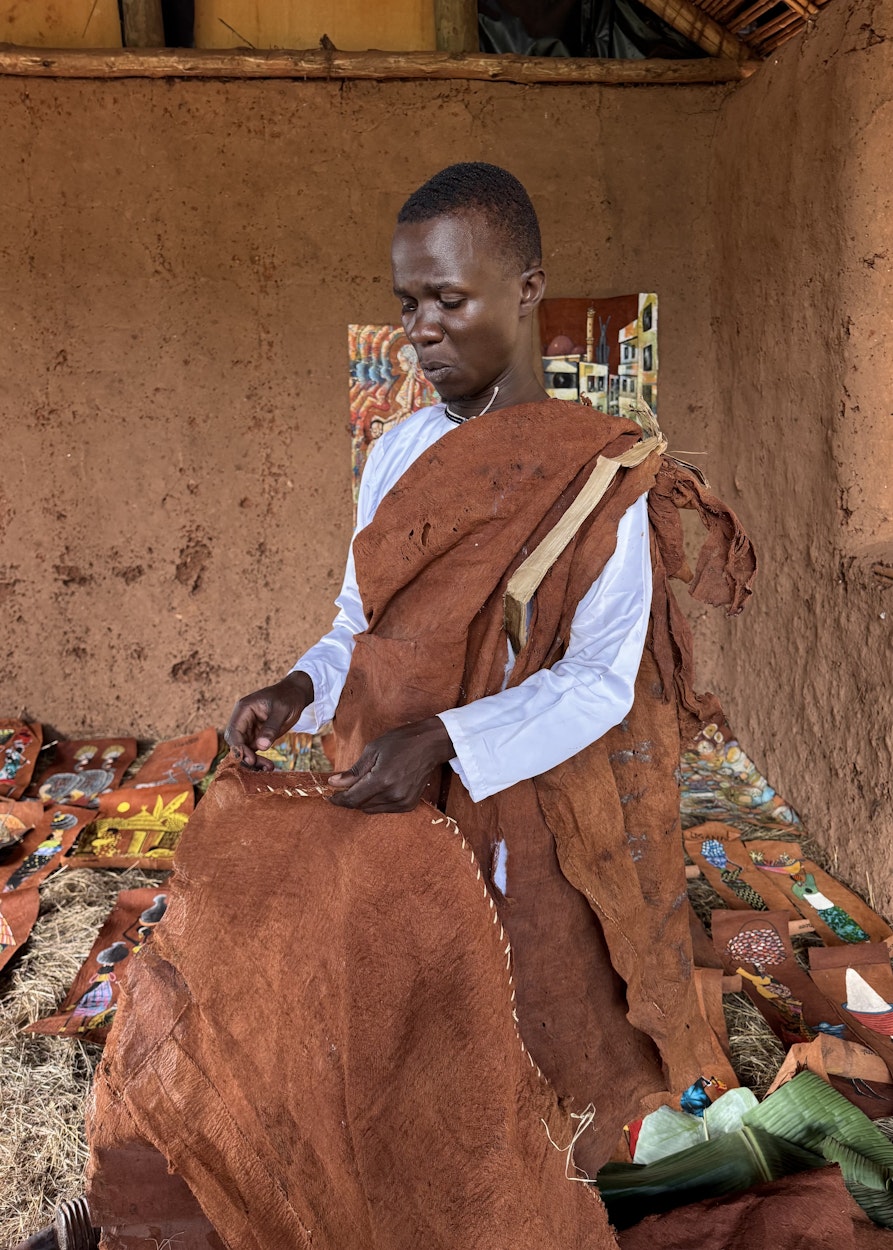
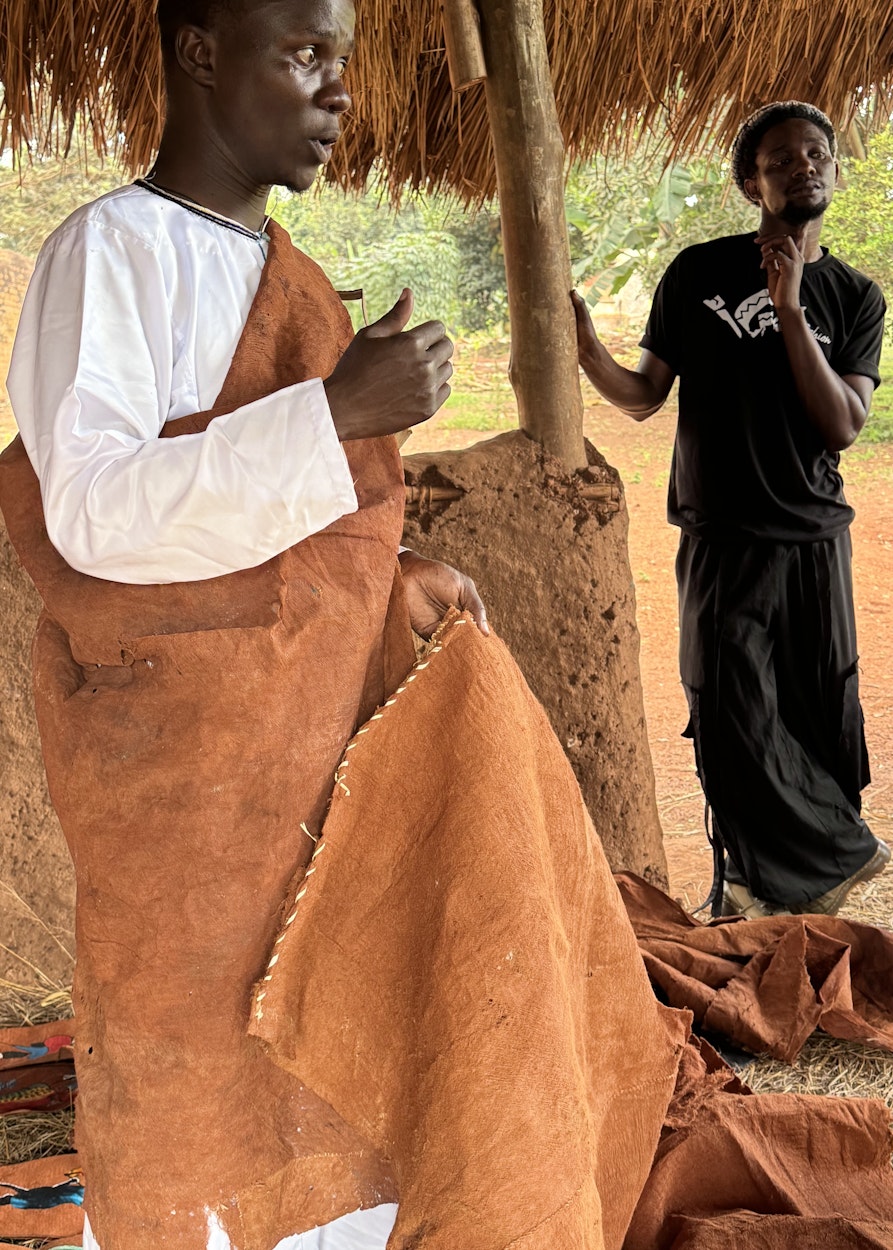
You also focus on local materials, such as barkcloth. Please tell us more.
Yes. Kwetu Kwanza is founded by IGC Fashion, which champions barkcloth – a biomaterial made from the bark of the mutuba tree. The process, which has survived for thousands of years despite attempts at suppression, is undergoing a revival in Uganda. You can learn more in our newly released IGC Fashion podcast, “Beyond Bark”, now available on streaming platforms. This year’s festival will feature several Ugandan designers working with barkcloth, including IGC Fashion, The Studio Craft, and ORM (Our Roots Matter). Other participants will showcase natural dyeing practices (e.g. from onion skins and sorghum by Calcul Studios, Ghana) and a variety of upcycled and recycled designs.
What might a sustainable fashion future look like for your community? What is needed?
We envision a future where Kwetu Kwanza becomes a key reason to visit Uganda – recognized internationally like London Fashion Week – celebrating the innovation and creativity emerging here. Uganda must also be acknowledged as a leader in the climate conversation, as our communities face its effects most directly. To achieve this, we need new partnerships with brands that genuinely care about sustainability and equity – especially those willing to engage with and support the global majority. Even small collaborations can make a world of difference.
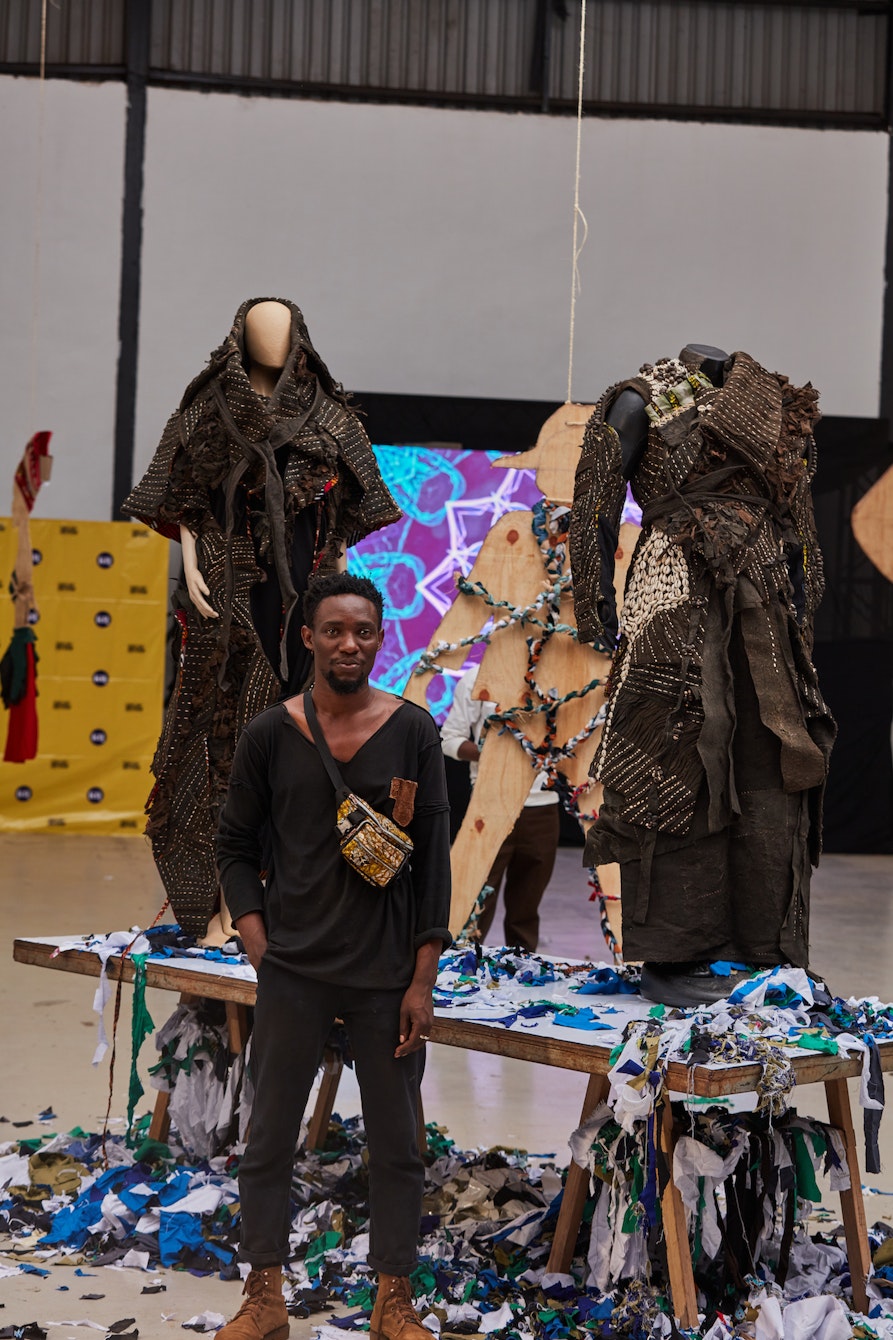
Mehr über Uganda und seine Designer*innen findet ihr hier und hier und hier und hier.
Der Pop-Up Secondhand Market, mit Unterstützung von Kleopatra, Klamotte, Pezzi di Perla, Easy Shop Tscherms, Best Secondhand Riffian und einigen privaten Spender*innen findet am 21. November von 15:00 bis 19:00 und am 22. November von 9:00 bis 12:30 im Werk 3, St.-Anton-Straße 7b in Bozen statt. Kommt vorbei! Wir haben viele sehr coole Stücke zu sehr guten Preisen für euch zusammengestellt. Der Erlös geht, wie gesagt, an das Festival Kwetu Kwanza.
